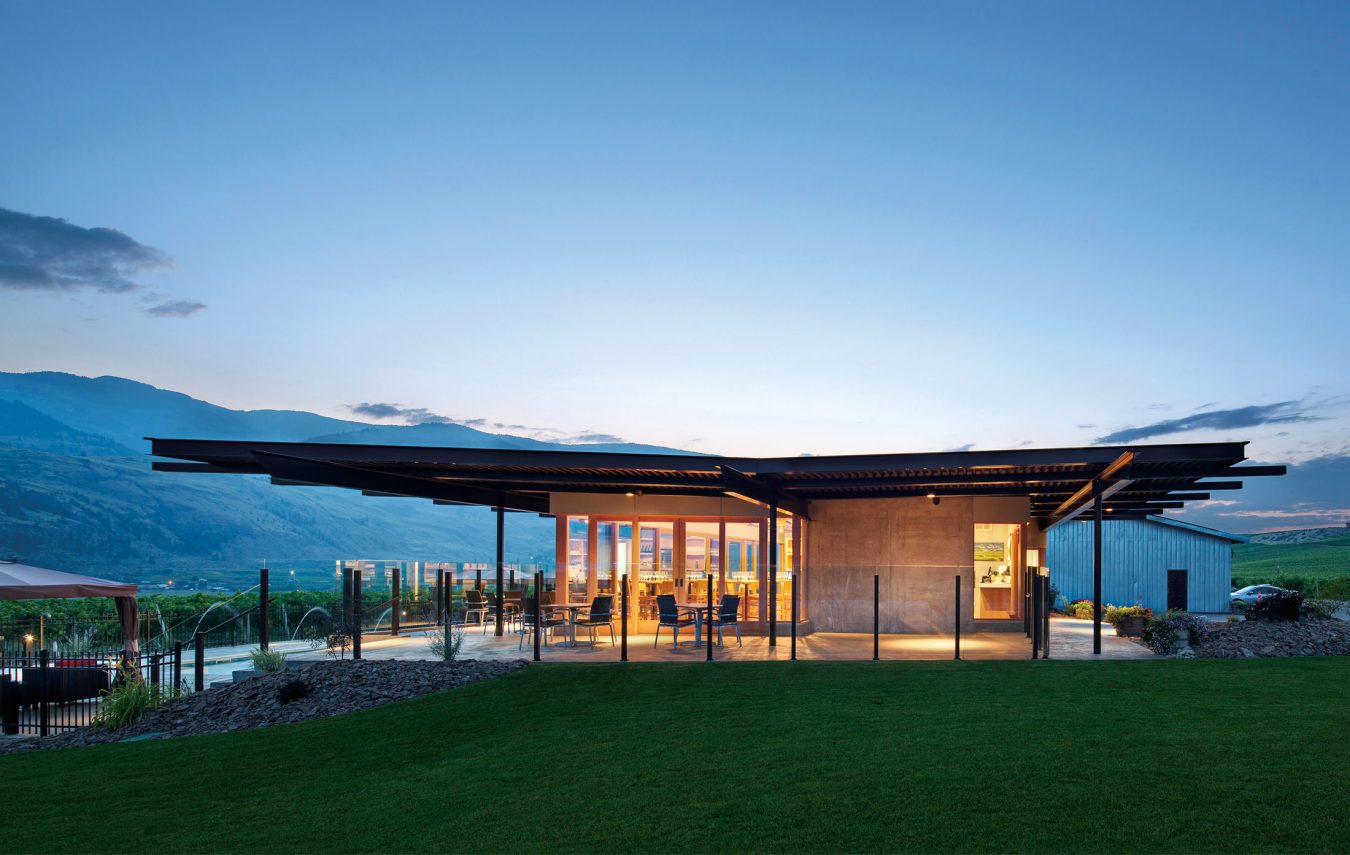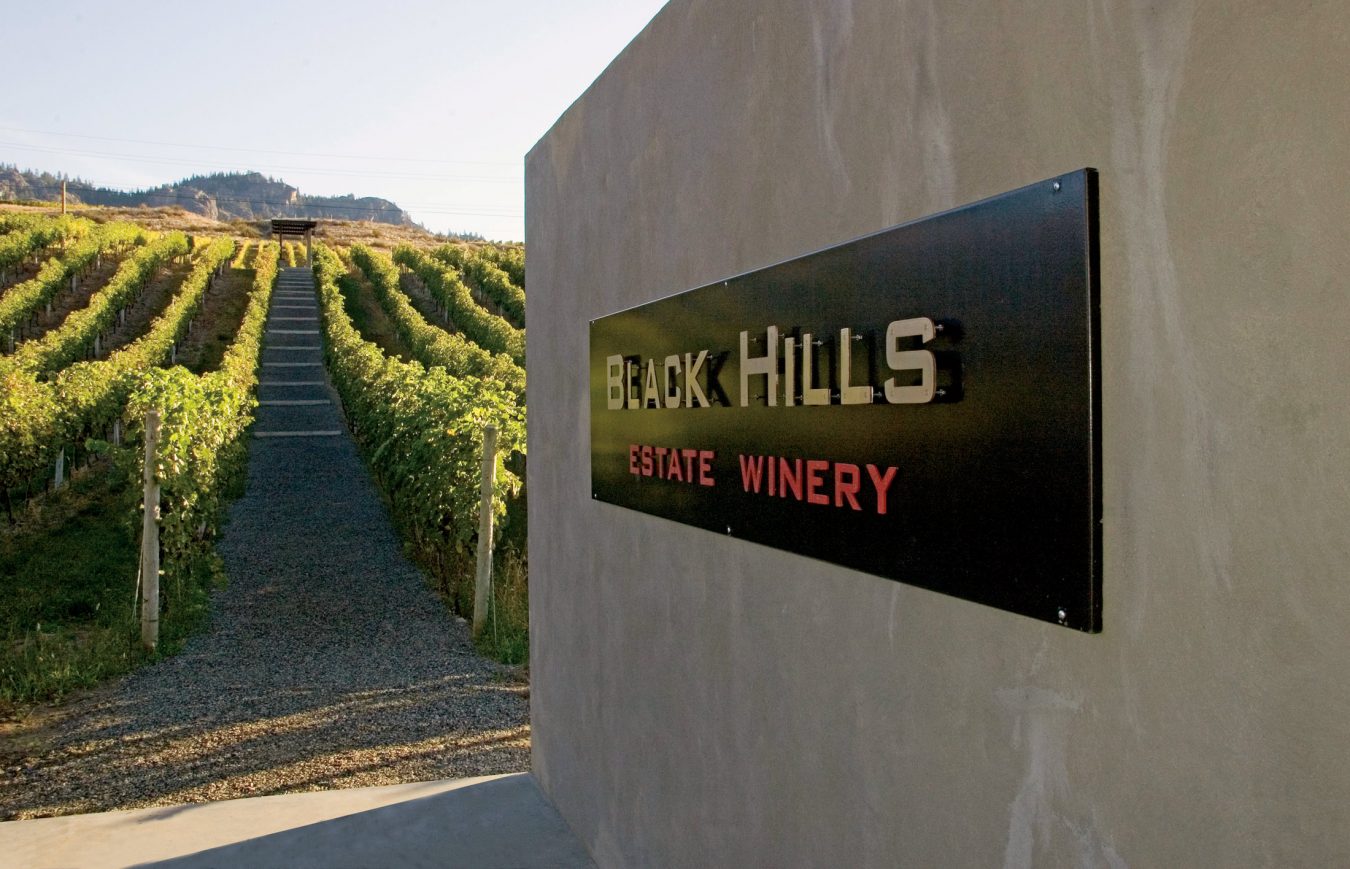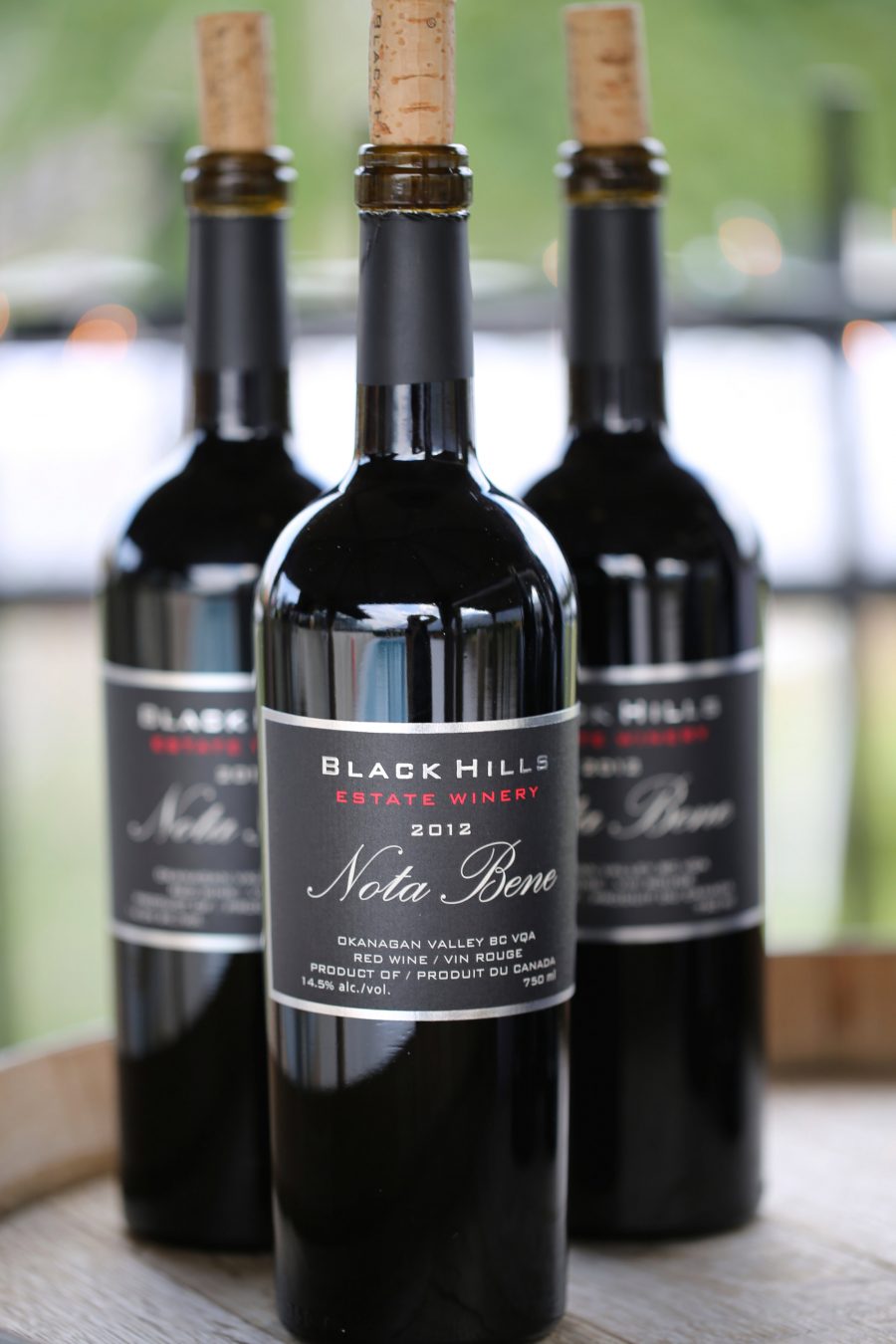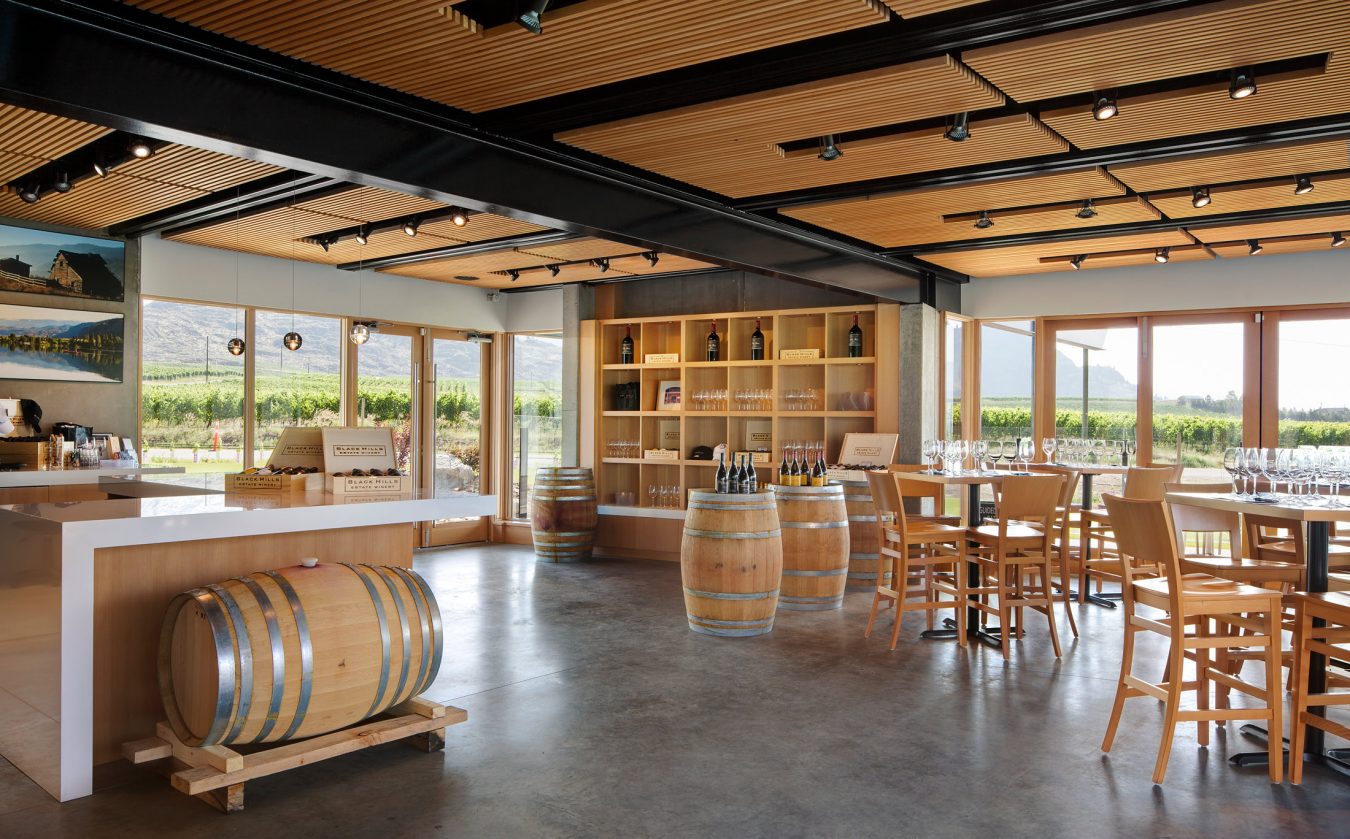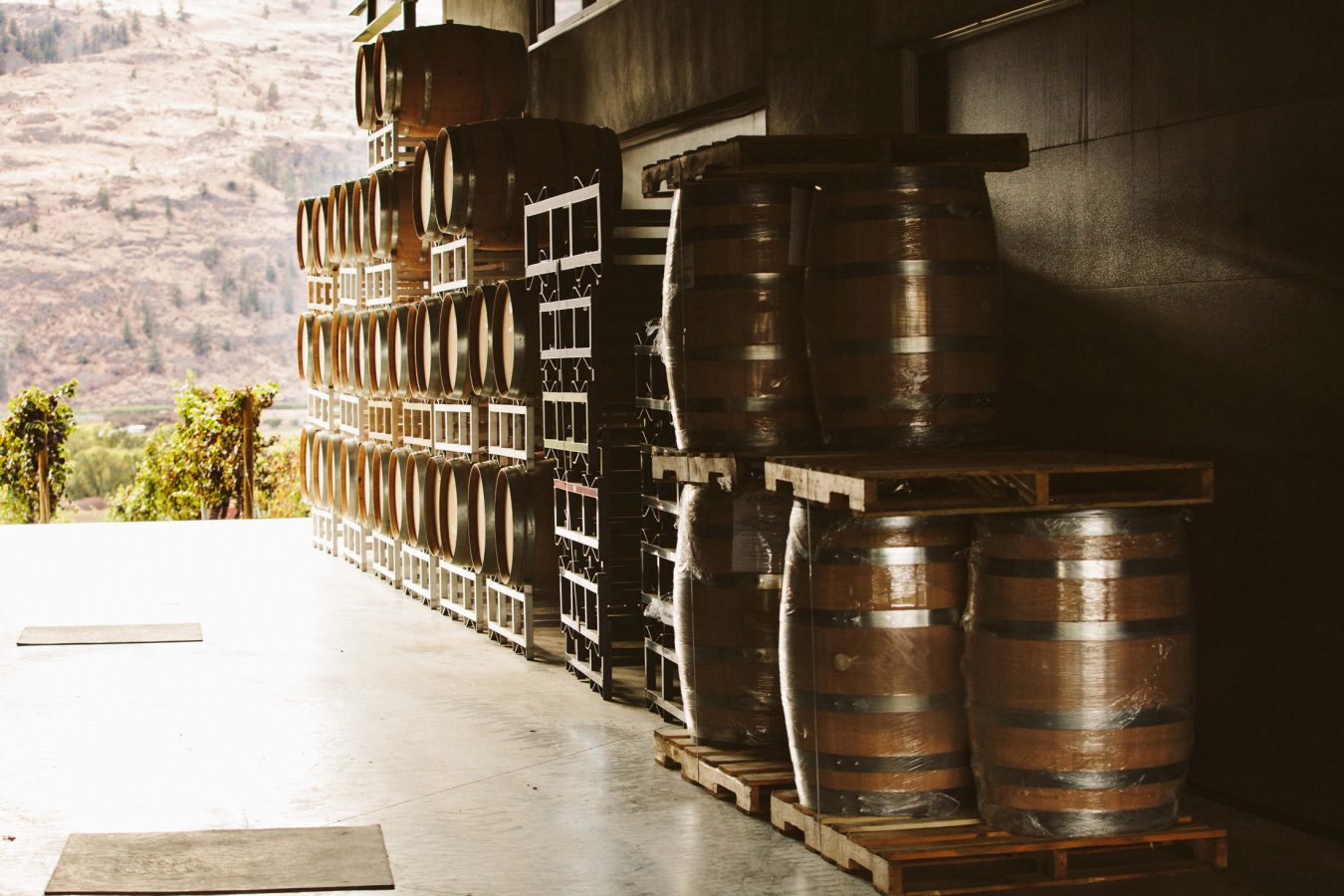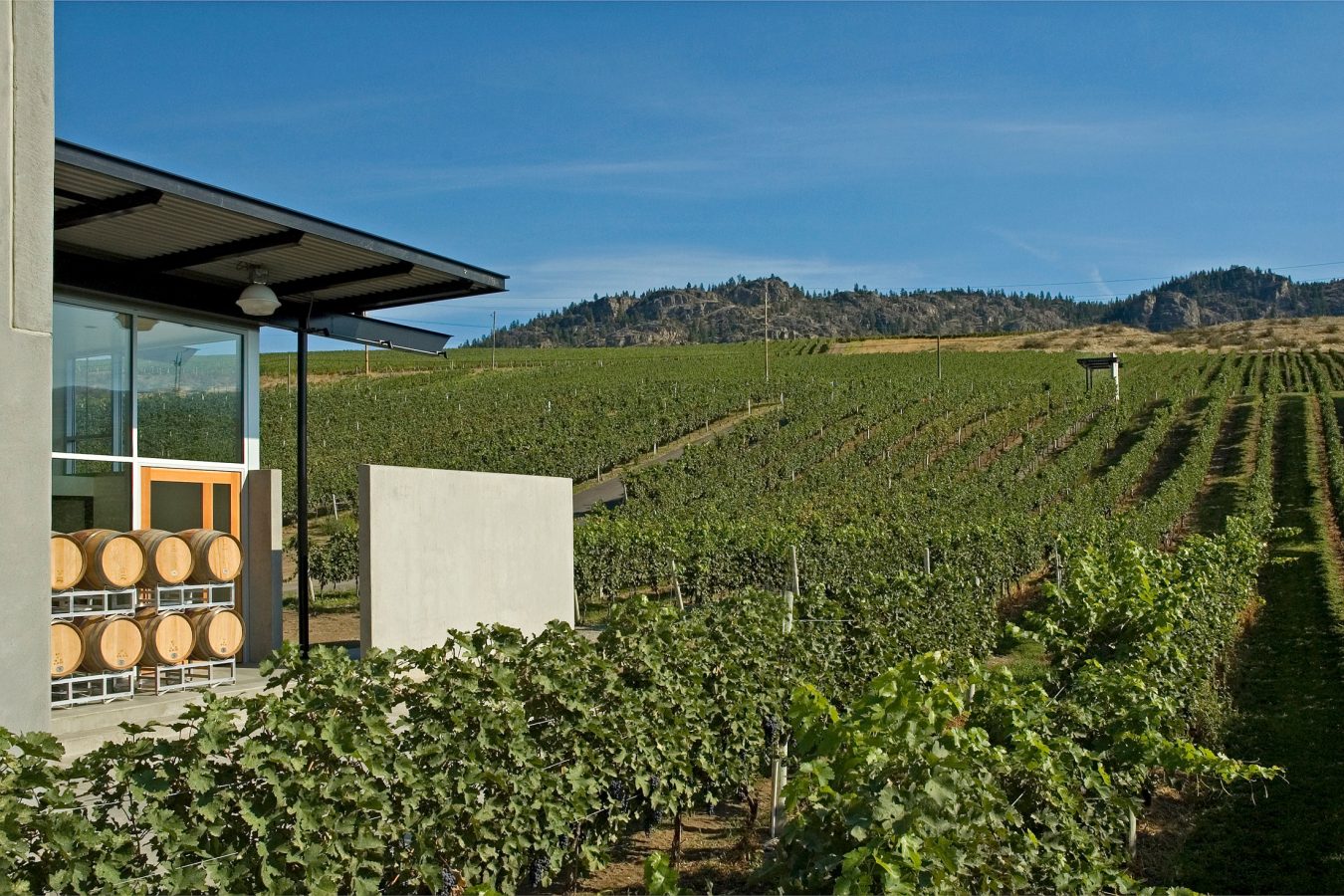Twenty years ago, two intrepid couples had a dream to make an outstanding red Bordeaux blend. Senka and Bob Tennant, along with Susan and Peter McCarrell, moved to the Okanagan from Vancouver and began planting vinifera vines on a 14-hectare section of neglected land on the now-famous Black Sage Bench. A Quonset on the property (previously used to store demolition derby vehicles) became their working winery, and in 1999 they bottled their first product.
And so, Nota Bene was born.
No one anticipated the power of this proprietary name; but the easily identifiable and boldly scripted black moniker immediately became synonymous with quality. By its first release to the public, the name of the wine had overshadowed that of its maker: Black Hills Estate Winery. Oenophiles had indeed taken note.
Some would argue Nota Bene was British Columbia’s first icon wine. Sure, other vintages, utilizing the same Bordelaise varieties (merlot, cabernet franc, and cabernet sauvignon) had come out of the Okanagan Valley, but none with such fanfare.
Alibi, another Bordeaux-style wine, came next from Black Hills. Nota Bene’s sister was made with sauvignon blanc and semillon. Other French varieties, such as chardonnay, syrah, and carmenère, found root on the Black Hills estate as well, eventually being bottled as single varietals.
In 2007, Black Hills was sold to Vinequest Wine Partners Limited Partnership, with Calgarian Glenn Fawcett at the helm of the purchase. In order to build the capital, he sold 316 shares at $25,000 a pop, with one notable buyer being British Columbia-born actor Jason Priestley. Fawcett is a visionary; he saw the potential for Black Hills, not just as a producer of fine wine, but also as a destination. To start, while wines of such caliber being made in a hut was charming, it left no room for growth. And so, the Quonset was torn down and replaced with a sleek concrete structure designed specifically for winemaking, as chic as the wines themselves. Winemaker Graham Pierce was hired to replace Senka Tennant, who stayed on to work through the transition.
As part of the Black Hills mantra —“continual quality evolution”— the vineyards were equipped with drip irrigation (easier to control and more environmentally conscious than other forms of watering), and Pierce’s new winery was outfitted with the best tools. Production grew, quality was heightened, and Nota Bene was selling out mere hours after release.
In order to raise additional capital to encourage more visitors to Black Hills, Fawcett sold an additional 140 shares at $30,000 each in 2011. With the influx of funds, a neighbouring vineyard was purchased, the winery was expanded, and the Wine Experience Centre was built. A kilometre up the road from the winery, this visitor’s centre rivalled anything built on the Black Sage Bench. It was sharply contemporary, ushering in those who wanted to sample wines seated in a luxury setting, or to have a casual meal in the Vineyard Kitchen.
With Fawcett in the lead, and Pierce in the winery, Black Hills reached new pinnacles. As such, it wasn’t a surprise when the estate changed hands again in fall 2017. Less anticipated was the buyer: Andrew Peller Limited. In one swoop, Peller purchased Black Hills, nearby Tinhorn Creek Vineyards, and the northerly Gray Monk Estate Winery in Lake Country. It was a smart move for the Canadian wine giant; having an estate like Black Hills in your portfolio elevates your status, and that’s what Peller president Randy Powell firmly believes: “We didn’t buy them to make them better, we bought them to make us better.”
Fawcett agrees that there is synergy to the partnership; Black Hills will benefit from upgrades to the winery and the current visitor experience, and also have access to fruit from other Peller vineyards. “There is a lot of cache with Black Hills, but they must maintain the legacy,” Fawcett says, adding that they want to grow the production and perhaps the overall portfolio. In the interim, everything is status quo at Black Hills. Pierce will continue to make wine, and Fawcett promises to stay at the helm doing what he does best as the face of the brand. After all, it was he who had the acumen and drive to prove Black Hills was more than just great wine made in a metal hut.
UPDATE, October 2018: Fawcett is stepping down from daily operations at the winery and moving to a new position with Black Hills parent company Andrew Peller.
UPDATE, December 2018: New Zealand native Ross Wise has joined Black Hills as winemaker.
Still thirsty? Take a look at our wine and food section.

